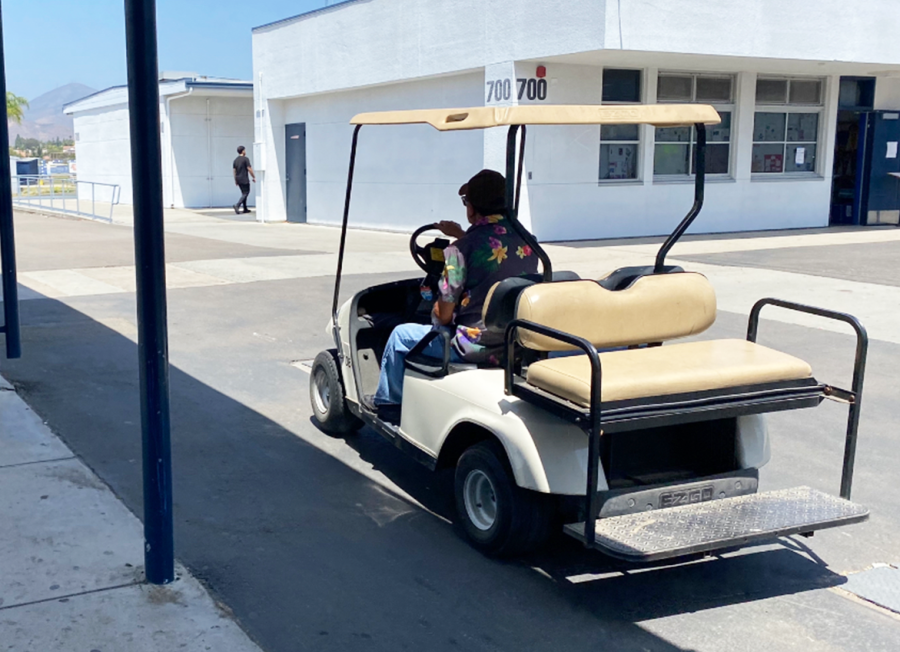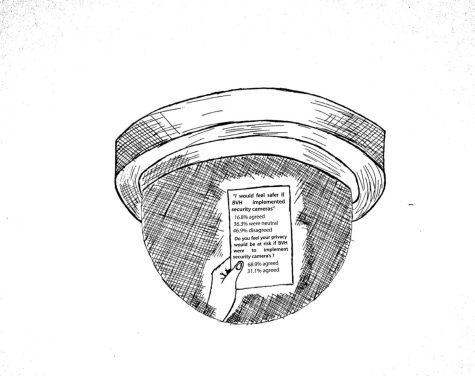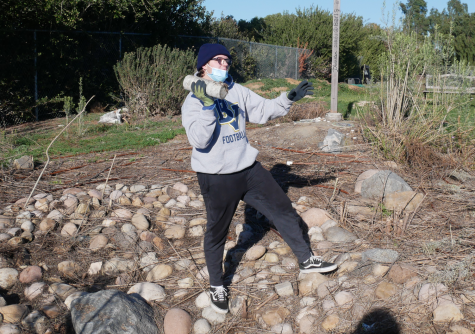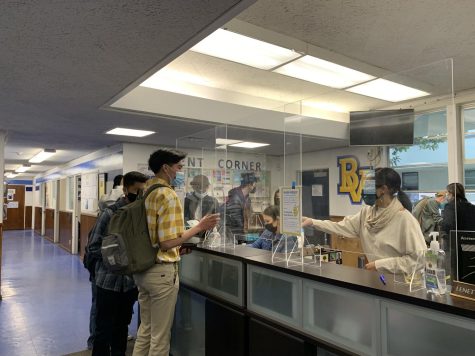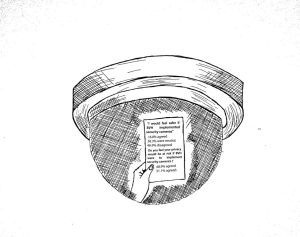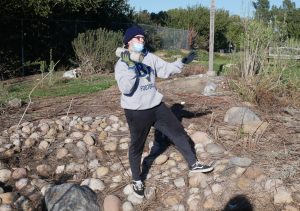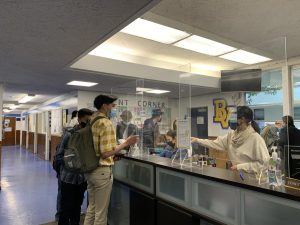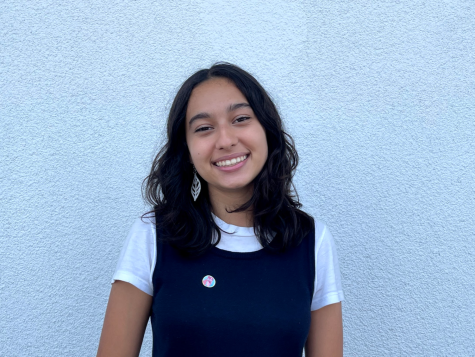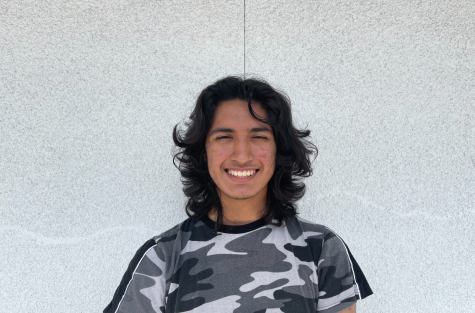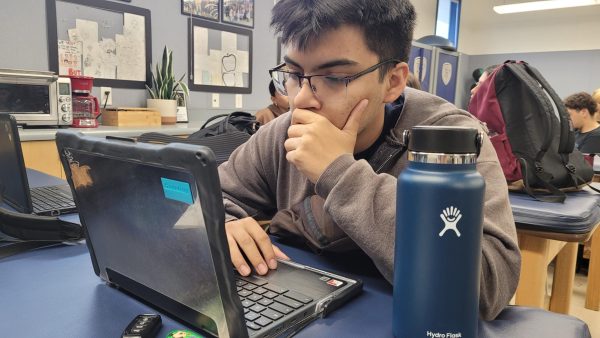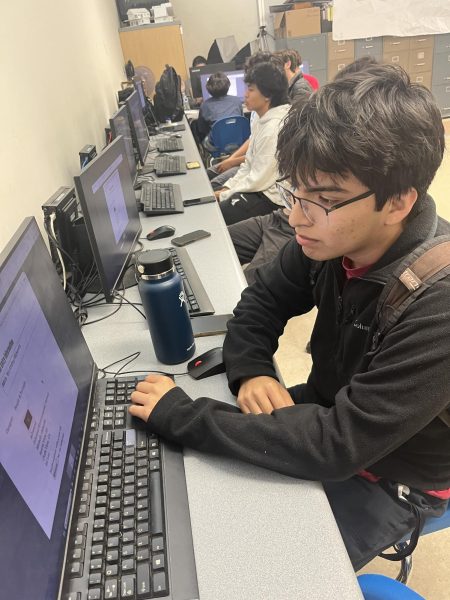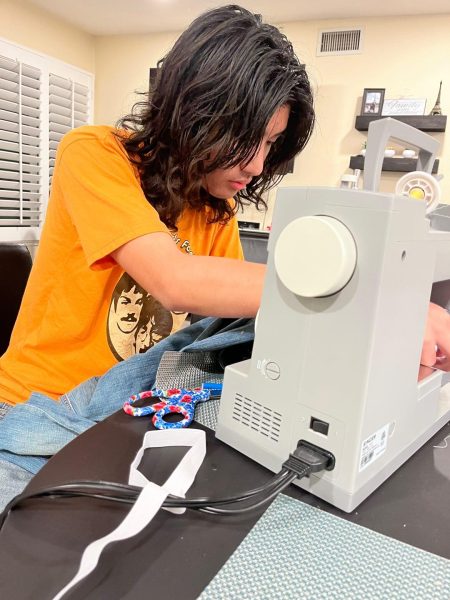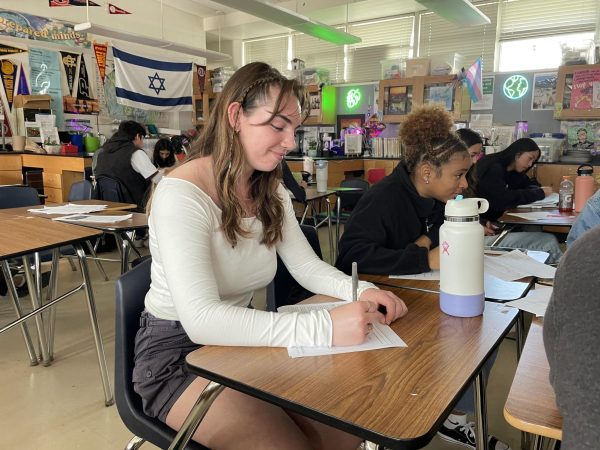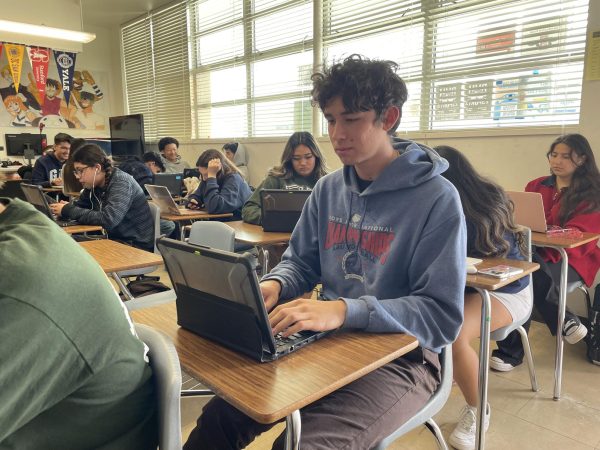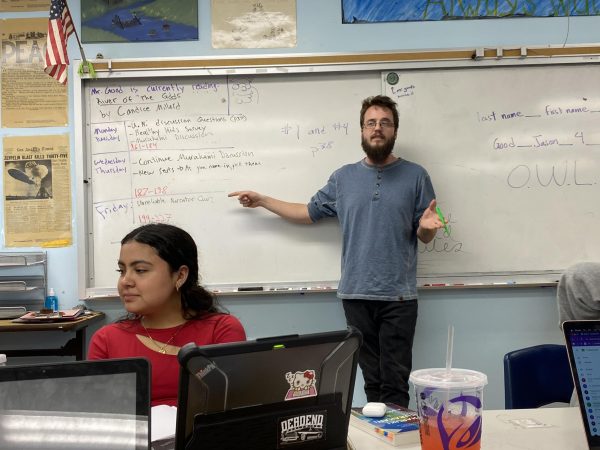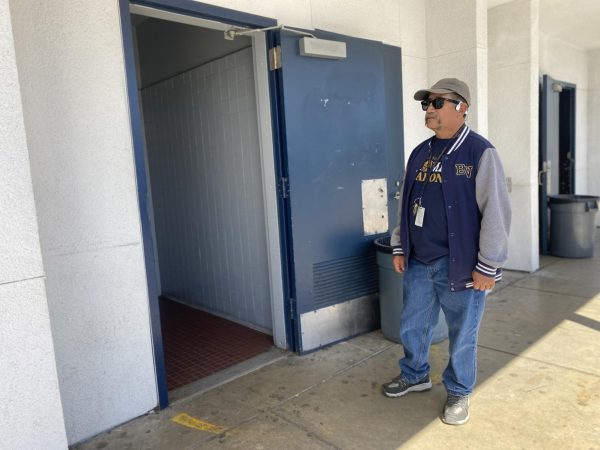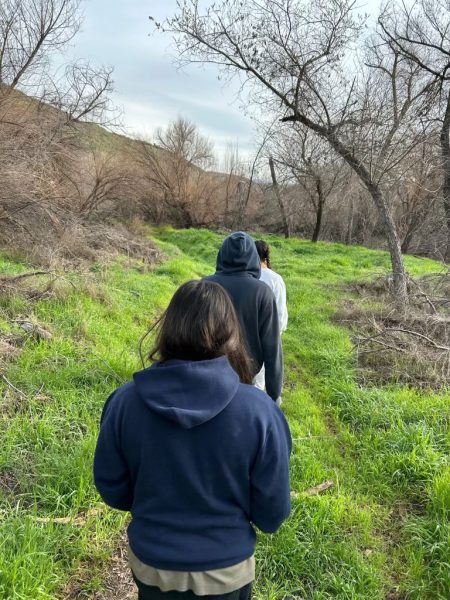Keepers on campus
The role of campus security and their impact on students
On May 22, Campus Assistant Oscar Panigua patrols the main hall during fifth period on the lookout for students outside of class. On occasion, he tells stu- dents who are loitering in the halls to “Get to class!”
July 16, 2022
Campus security personnel can be seen driving hastily throughout campus in their light beige golf carts encouraging lingering students in the halls to get to class. After students enter class, their interactions with campus security are little to none, leaving students unaware of the role campus security plays behind the scenes.
“[Campus security’s role is] ensuring that the campus is safe. They support students, staff and help [resolve] problems with safety issues,” Assistant Principal Esther Wise said.
Campus Security Assistant Myrah Valenzuela has worked at Bonita Vista High (BVH) as a campus assistant for nearly three years. She has immense love for her job and the work she does on campus. Campus security assistant Daniel Alonzo has been working at Bonita since July of 2017. He has been a campus security personnel for the last 20 years. He gravitated towards the job as he gets “ more freedom”.
Both Valenzuela and Alonzo are very observant of students throughout campus. Alonzo has learned and become accustomed to typical locations individual students will be in which helps with his job as he searches for unfamiliar faces. They are aware of the behavior students display.
He describes that he needs to be available for anything that arises in the day, such as a student having a medical issue or routine school drills. Wise notes that campus security assistants actively collaborate with the BVH administration to find solutions to problems that come up throughout the day to “ensure a safe, comfortable, and clean school environment” for students and their input is something she seeks out.
“We have a really good relationship with our Assistant Principals here. They’re good at trying to figure out how something is going to work with our campus. They’re interested in hearing our feedback. We don’t make decisions for them, but they’re good at listening to what the word on the street is. They’re good at coming to solutions together,” Alonzo remarks.
One of the solutions, according to Valenzuela, took the form of fixing the system for COVID-19 testing for students in sports. The campus security ran into an issue of managing students going in and out of class for COVID-19 tests and it was difficult to keep students accountable for where they needed to be.
“You are asking them to be unsupervised and get themselves to these tests. They need help getting there and getting back. They know what time they have to be at the site, a lot of them are going to want to mosey back to class,” Alonzo said.
Valenzuela describes that the campus security assistant worked with BVH administration to create an organized schedule for the assistant to keep track of students easily. Now, testing is done on Mondays and Wednesdays and each testing group is blocked an hour apart. Valenzuela emphasized that through the team work of administration and the campus security assistants, they were able to create structure in their COVID-19 testing system which made the process more efficient.
Campus security assistants look for passes in each student’s hand. Alonzo notes that the amount of students without a pass makes his job more difficult as he is unsure if the students are allowed to be out of class or not. Occasionally, if a student does not have a pass, Alonzo will ask the student to go back to class and get one. However, if the student looks as though they are headed to a specific location, such as the restroom, Alonzo does not request a pass.
“Everybody’s supposed to have a pass and are encouraged to get them back to us as soon as possible. If it means I have to just instruct them, they go back and get a pass,” Alonzo said. “That takes cohesion, it takes 100 percent cohesion from everybody to adhere to the practice of everyone having a pass.”
Alonzo describes his method of getting students back to class is to be a “presence”. Often, he parks himself with a group of students who are not in class in the hallway or by the quad in order to encourage them to get back to class. Alonzo characterized himself and other campus security assistants as “visual deterrents”. Being visible, present and out there will promote things. — Campus security assistant Daniel Alonzo
“Being visible, present and out there will promote things. From time to time, I choose to say things like, ‘Go now, keep it moving and figure it out.’ Just different things, not aggressive, it’s promoting getting things done,” Alonzo said. “What [administration] say every day is let’s usher the kids back to class. If that doesn’t work, then you need to say something, point or do whatever it takes.”
Alonzo pointed out the shift from reactionary to restorative practices in the way campus security personnel deal with disciplinary measures for students. Alonzo believes both approaches are justifiable and incorporates both in his interactions with students.
“There’s merits to both, trying to work out a problem by understanding that everyone has feelings involved. What their needs are, those needs are met. Discuss it and get out of the way,” Alonzo said.
Additionally, Wise describes the intent behind restorative practices as an ongoing awareness to foster relationships with students. She explains that they try to practice an open door policy in which they assume best intentions when listening to students so that students feel “comfortable” in their school.
“The buzzwords are restorative practices, but at the end of the day, we want it to be your safe place, your utopia; that you know somebody cares and will celebrate you,” Wise said.
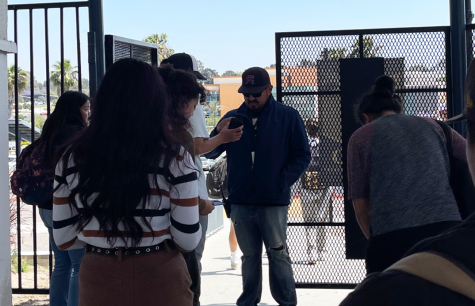
trance gates to leave after school. Campus Assistant Daniel Alonzo checks stu-
dents IDs for the “OC” sticker indicating their approval to leave campus. (Yealin Lee )
Valenzuela encourages students who are on the trajectory of being late differently than the common phrase students hear in the hallways, “get to class”.
“I never like to tell them ‘‘get to class’. It’s more of ‘alright guys, let’s walk and talk’. I feel like when you tell them to get to class it feels more of a demand to do something. When you’re telling them to walk and talk it’s more of a ‘hey, I understand you want to talk to your friends, that’s great, let’s walk and talk to them and get there’,” Valenzuela said. “Or whenever I see them running late and I say ‘hey, what’s going on?, or ‘you’re late man, who held you up this time?’ I’m trying to find that other outlet to get them to open up and laugh about it, but at the same time understand that we’re around.”
Humor is a trait that both Alonzo and Valenzuela possess and use everyday in their jobs to connect with students. Valenzula finds the use of humor beneficial in her interactions as she finds students are “more likely to open up when they laugh”. She believes that humor can be a great tool for connection as it can be an “outlet to show them that we’re not all about being the bad guy”.
Furthermore, Alonzo adds that while building a relationship with a student is important, it is just as crucial to establish a boundary while having familiarity with each other, behavior is going to be looked the other way. For Valenzuela, creating connections with students makes her want to come to work.
“I see them as my kids too. You try to support them just if they were one of our kids. I love being able to have this friendship with one another so they can feel that we’re here for them. We’re a parent just like their parents at home. Some of them might not have that and we don’t know that but at least they feel that comfort here at school,” Valenzuela said.

